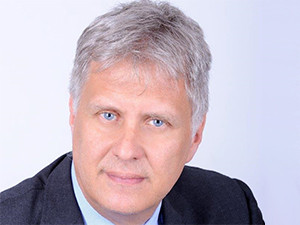
Eskom's cat-and-mouse game with independent power producers (IPPs) has put SA's renewable industry on the back foot.
The power utility's delays in signing new contracts with IPPs has resulted in the country falling out of the Fieldstone Africa Renewable Index (FARI) leaders, after occupying the top position only four months ago.
SA's renewable energy industry has been held back by uncertainties regarding the future of local IPPs. This after power utility Eskom wrote a letter to the Department of Energy asking for clarity or a dialogue regarding the next contracting phase of IPPs beyond bid window 4.5.
Eskom has also been accused of delaying the signing of contracts with IPPs, thereby directly affecting the viability of projects in an advanced stage of development.
FARI is the product of Fieldstone Africa, an independent investment bank focused on energy in Africa. The report is released three times a year and ranks national markets in terms of current suitability for investment in renewable projects.
Sleeping giant
In the June 2016 index, SA was the leading country, followed by Morocco, Uganda and Egypt. Ratings agency Moody's also commended SA as having the world's fastest growing green economy in 2015. However, Moody's in September placed Eskom's ratings on review for downgrade.
In the current renewable energy index, SA is placed in a separate category, leaving Morocco occupying first position, followed by Uganda and Egypt.
SA has been placed into the "Sleeping Giant" category - a new category created to express its current market predicament, says Fieldstone. The country's renewable potential is effectively suspended until further notice, it adds.
Countries such as Ethiopia, Kenya, Ivory Coast and Mali were included in the FARI Honourable Mention list, but not retained on the current list. These countries, like SA, show potential but there are additional legal or regulatory hurdles evident, it says.
Fieldstone Africa says although Eskom says it has not "put the brakes" on renewable energy, by writing a letter to the Department of Energy asking for clarity regarding the next contracting phase of IPPs, the effect has been akin to a full stop, with investors weighing if they should continue.
Subsequently, it says, Eskom applied selective figures and suspect technology issues to claim that any future renewable energy will be prohibitively expensive.
"It is significant that South Africa has fallen out of our current ranking. Load-shedding ended in no small part due to renewable energy providing a secure and reliable energy source. This new generation also enabled Eskom to catch-up on its maintenance backlog allowing for more time to address future power needs," says Jason Harlan, CEO of Fieldstone Africa.
Foreign direct investment
Harlan adds the independent renewable energy power producers made significant contributions to the economies of rural areas across South Africa with REIPPPP as the single greatest source of foreign direct investment since the end of apartheid.
By October 2015, he notes, the programme had created approximately 20 000 jobs and led to the investment of approximately R196.4 billion in SA. "It would be a shame to simply abandon this demonstrated progress for a distant and unvetted pet project," says Harlan.
According to the FARI report: "There is an unstated desire to keep the Eskom balance sheet unencumbered in order to be prepared for one particular nuclear initiative, the success of which appears to be close to the hearts of certain elements of government. Treasury, a transparency advocate (and even credible nuclear alternatives) are less enthusiastic about this particular (pre-) selection.
The current round of bids related to renewables is now uncertain, leaving international bidders a little less enthusiastic about expending more development resources in SA in all energy matters, it says.
"With bid bonds, for the current round of REIPPPP bids involuntarily extended to March, it is unclear whether a true assessment of what can and should be done to bring certainty back to the system will be carried out, or if a more narrow agenda to thwart independent development and choose winners will be the new way forward. In the meantime, current and would-be market participants are left to assess their options and ongoing costs.
Share